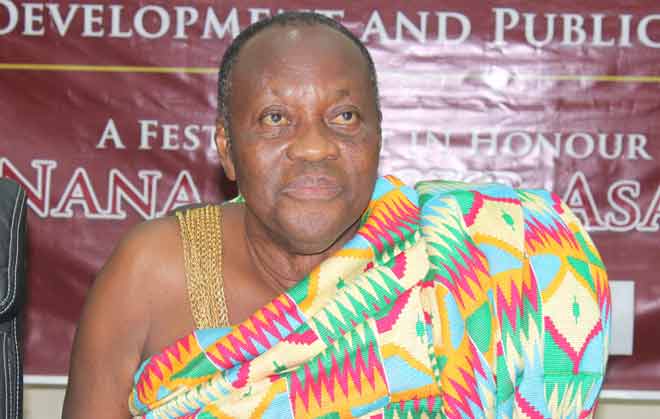
Council of State will work for public good - Nana Otuo Siriboe
The Council of State will focus its activities on issues that will have a long-term effect on national development, instead of the outcomes of general elections.
Accordingly, the council will help create awareness of factors which positively or negatively affect national development and deal with them openly.
“The council will look at the interests of the people over the long term, generational issues rather than limited to who wins the next election,” the Chairman of the council, Nana Otuo Siriboe II, told the Daily Graphic in an interview.
He said the council “will, therefore, create awareness of issues that affect the present and future generations and deal with them effectively and dispassionately”.
Answering questions on what the council would do to make it more relevant to democracy and national development, as well as help dispel the public notion that it was irrelevant and sycophantic to governments, Nana Siriboe said the council would not be limited to in-camera advice to the President, among others, but include in its activities the mobilisation of public opinion from all angles to help build national consensus on issues.
“We will mobilise the public from all angles — religious, secular and all sectors — to help build national consensus on issues to promote progress, accelerate development and make democracy meaningful,” he said.
Advisory role
On the advisory role of the Council of State, Nana Siriboe said the members of the council would seek to “offer and proffer mature advice not aimed at a particular government but that which will enhance governance and the sustainable growth and development of the country”.
He noted that one of the measures to make the council more relevant to the constitutional dispensation was the responsibility placed on regional representatives on the council to ensure that they carried the views of their constituents to its meetings.
“We have tasked the regional representatives to have open and functional interactions with their people from the regional coordinating councils, the district assemblies, the traditional authorities, religious groups, identifiable bodies and the public and bring these views to the council,” he stressed.
Engagement with people
He explained that the council expected quarterly reports from the regions to be featured in its deliberations.
“Regional representatives are to engage with the people, such that issues that may not be highlighted, such as lack of potable water, could be brought up into national discourse,” he emphasised.
Nana Siriboe pointed out that the council would be proactive in handling issues of public interest, including regular engagements with the President, political appointees and all those bodies and individuals required to be advised by the council.
“We have a good calibre of members on the council and we will offer quality advice informed by our conscience. We will not wait for issues to be brought to our attention but suo moto take up matters of public concern before they fester,” he promised in clear animation.
He said because there were no magic-wand solutions to developmental issues, the council would evaluate alternatives through rigorous work backed by data and reasons that must be credible and acceptable to the large majority of the people.
Cooperation
Nana Siriboe, accordingly, appealed to the public to exercise patience and offer the necessary support and cooperation to the council to enable it to carry out its mandate in an independent and transparent manner.
He said the council would take the public interest so seriously that although its advice was supposed to be in secrecy, it would functionally involve the public in its work through the publication of annual reports to detail how it had discharged its obligations.
“This way, we will make the council potent, relevant and credible to our people,” he concluded.
